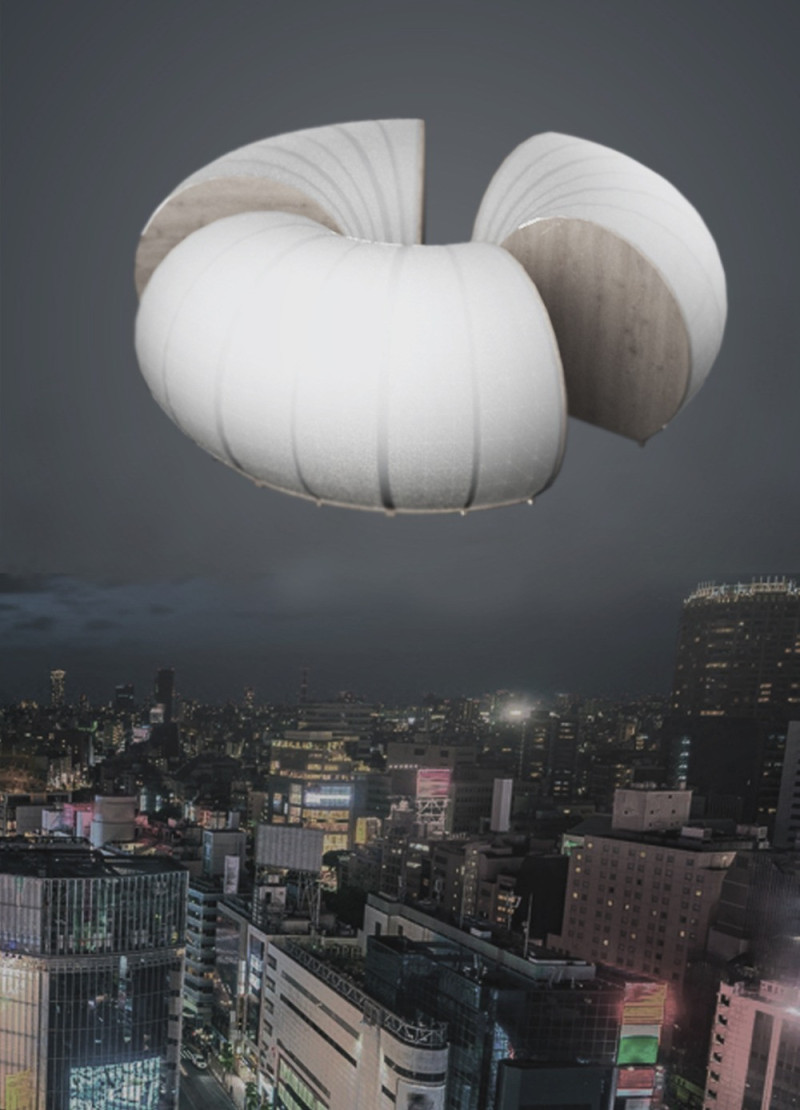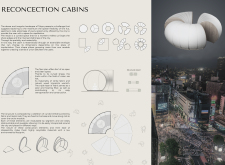5 key facts about this project
The Reconnection Cabins are located in the dense and irregular landscape of Tokyo. They serve as a place for meditation, allowing users to step away from the busy city life for a moment. The overall design focuses on flexibility within a small space. Curved forms are used to create an environment that feels open and inviting, helping users forget the sharp lines and bright lights of the urban setting.
Design Concept
Curved shapes are central to the design. They not only add visual interest but also enhance the experience of those inside. The gentle curves soften the building's presence and encourage interaction among users. When several cabins are grouped together, they foster a sense of community, making the space not just a retreat but also a gathering point.
Materials
The cabins feature white fabric, which adds warmth and comfort to the interior. This fabric also serves a practical purpose, filtering sunlight and sound, improving the atmosphere inside. Natural wood is another element in the design, connecting the cabins to the natural environment and offering a contrast to the urban surroundings.
Structural Composition
The cabins are built with a framework of curved timbers, which are linked by fabric and metal rods. This structure allows the cabins to move along rails, making them adaptable to various locations. Each cabin component is designed for easy disassembly and reuse, showcasing an approach that values sustainability and efficiency in its construction.
Environmental Considerations
The project highlights sustainability by choosing materials that are recyclable, keeping the environmental impact low. This thoughtful consideration of materials enhances the functionality of the cabins and supports their integration into the urban fabric. They can be relocated when needed, reflecting the changing needs of the city.
The Reconnection Cabins offer a unique design that emphasizes usability and comfort. With their flowing lines and inviting atmosphere, they provide a serene space for introspection amid the complexities of city life.


















































